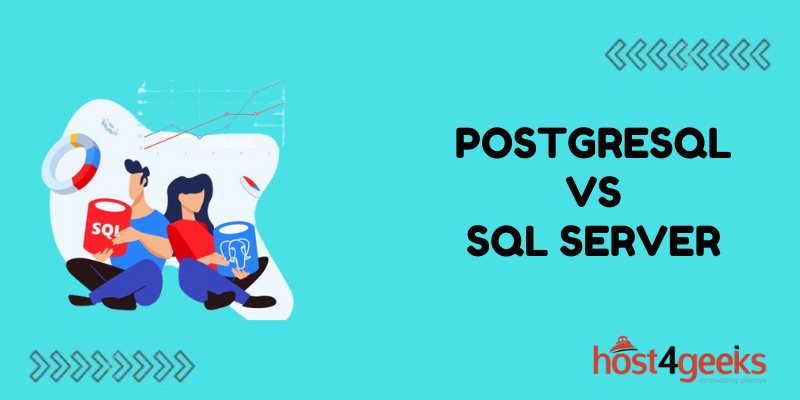The choice between PostgreSQL and SQL Server for your database needs can be difficult. Both are mature, stable, and full-featured relational database management systems with large user bases.
However, there are some key differences that you should consider when deciding which one is the best fit for your application and organization.
Scalability
Both PostgreSQL and SQL Server can scale to handle large amounts of data and users but take different approaches.
SQL Server offers excellent vertical scalability for transactional workloads, allowing you to upgrade to stronger hardware like multiple CPUs and large amounts of RAM on a single server. However, scaling out SQL Server across multiple nodes is more complex and may require expensive Windows Server licenses.
PostgreSQL has more flexible scalability. It allows for easy horizontal scalability using replication tools like Slony, Londiste, and Bucardo. Queries can be parallelized across multiple CPUs more efficiently than SQL Server. Sharding is also easier to implement in PostgreSQL if needed. Overall, PostgreSQL scales out more gracefully and economically on commodity hardware.
High Availability
Mission-critical applications require high availability and minimal downtime. Both databases offer HA features, but SQL Server places more emphasis here.
SQL Server has AlwaysOn Availability Groups that allow synchronous replication of transactions to secondary servers for redundancy. Read-scale availability groups can also offload reporting queries. Failover clustering is supported for faster HA on Windows servers.
PostgreSQL also provides replication tools for redundancy. It allows asynchronous streaming replication to standby servers. Third-party tools like repmgr provide more automation around failover. However, HA is stronger and more tightly integrated in SQL Server out of the box.
Performance
Speed and throughput are often important benchmarks. Both databases are tuned for performance and offer many configuration options.
PostgreSQL has a reputation for very fast reads due to the efficiency of its indexes like B-tree, Hash, and GiST. Writes can be slower due to having to write to the transaction log (WAL) first before committing. However, multi-core processors and SSDs are mitigating this trade-off.
SQL Server has very fast write performance and strong concurrency due to robust locking and isolation levels. Data files and log files can be placed on separate disks to reduce write bottlenecks. However, read performance depends heavily on having proper indexes in place.
So both can provide excellent performance that can be tailored through careful database design, indexing strategies, and tuning configurations.
Security
Storing and safeguarding data properly is a priority for most organizations. PostgreSQL and SQL Server take security seriously with numerous features.
SQL Server benefits from Microsoft’s experience building enterprise software. Roles, credentials, and permissions can be well-managed in Active Directory. Auditing and compliance features are built-in for industries like healthcare. Transparent Data Encryption helps protect sensitive data at rest.
PostgreSQL also has robust permissions at the database, schema, table, and column levels. Stored procedures can enforce logic. Pgcrypto provides encryption capabilities. PostgreSQL also offers certificate and LDAP authentication for integration with directory services. Overall both products have excellent security for a variety of needs.
Ecosystem
Beyond the core database, the surrounding ecosystem of supported languages, platforms, and integrations matters. Both databases have mature ecosystems.
SQL Server has great support for Windows and .NET languages like C# and Visual Basic. Integrations like Power BI, SCCM, Active Directory, and BizTalk are more turnkey on Windows servers. The core database is also thoroughly optimized for Windows performance.
PostgreSQL runs on many platforms like Linux, Unix, macOS, and Windows. It works well with languages like Python, Java, Node.js, Go, R, and more. The community is very active in building open source extensions and tools. JSON support is also more advanced in PostgreSQL.
Cost
Budget is an important factor for nearly all organizations. When evaluating the total cost of ownership, PostgreSQL often comes out significantly ahead.
Commercial editions of SQL Server are expensive, often costing thousands to tens of thousands per server core based on features. You must also factor in the cost of Windows Server licenses. The total cost quickly becomes prohibitive for larger servers.
PostgreSQL is free and open-source software. Community editions have no licensing fees. Companies like EnterpriseDB provide commercial support, management tools, and optimized PostgreSQL versions, but are still much cheaper than SQL Server in most cases.
Administration
Ongoing database administration overhead should be considered when estimating long-term costs. Good management tools are invaluable for DBAs.
SQL Server Management Studio is a very mature GUI tool for DBA tasks like profiling queries, managing indexes, configuring security, setting up replication, and more. Command line tools like sqlcmd are also available. DBAs experienced with Microsoft platforms often favor these tools.
PostgreSQL database administration relies more on open source tools and command line interfaces like psql. GUI tools like pgAdmin provide similar query profiling and indexing capabilities. There are also companies providing commercial database admin tools specifically for PostgreSQL.
Overall both databases offer good options for management and optimization, with SQL Server having more polished in-box experiences particularly friendly to Windows users.
Conclusion
Both PostgreSQL and SQL Server are mature, robust databases with world-class features. Which is best for your needs depends on your application, environment, priorities, and budget.
If you favor tight Windows integration plus enterprise HA and security features, are willing to pay licensing fees, and have in-house SQL Server expertise, it may be the better choice.
If you want an open-source database that can run anywhere, gives you control over optimization, offers flexible scalability, and keeps costs down, PostgreSQL is hard to beat.
By considering key factors like scalability, performance, security, ecosystem, and cost, you can determine which database is the better strategic fit for your organization’s data management needs. Both are excellent choices loved by enterprises and developers alike, so you can’t go wrong researching them more as you evaluate options for your next project.

